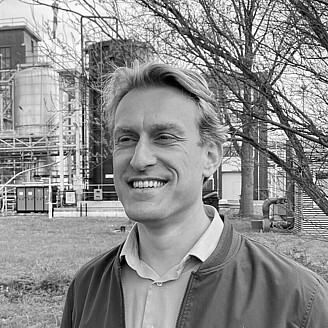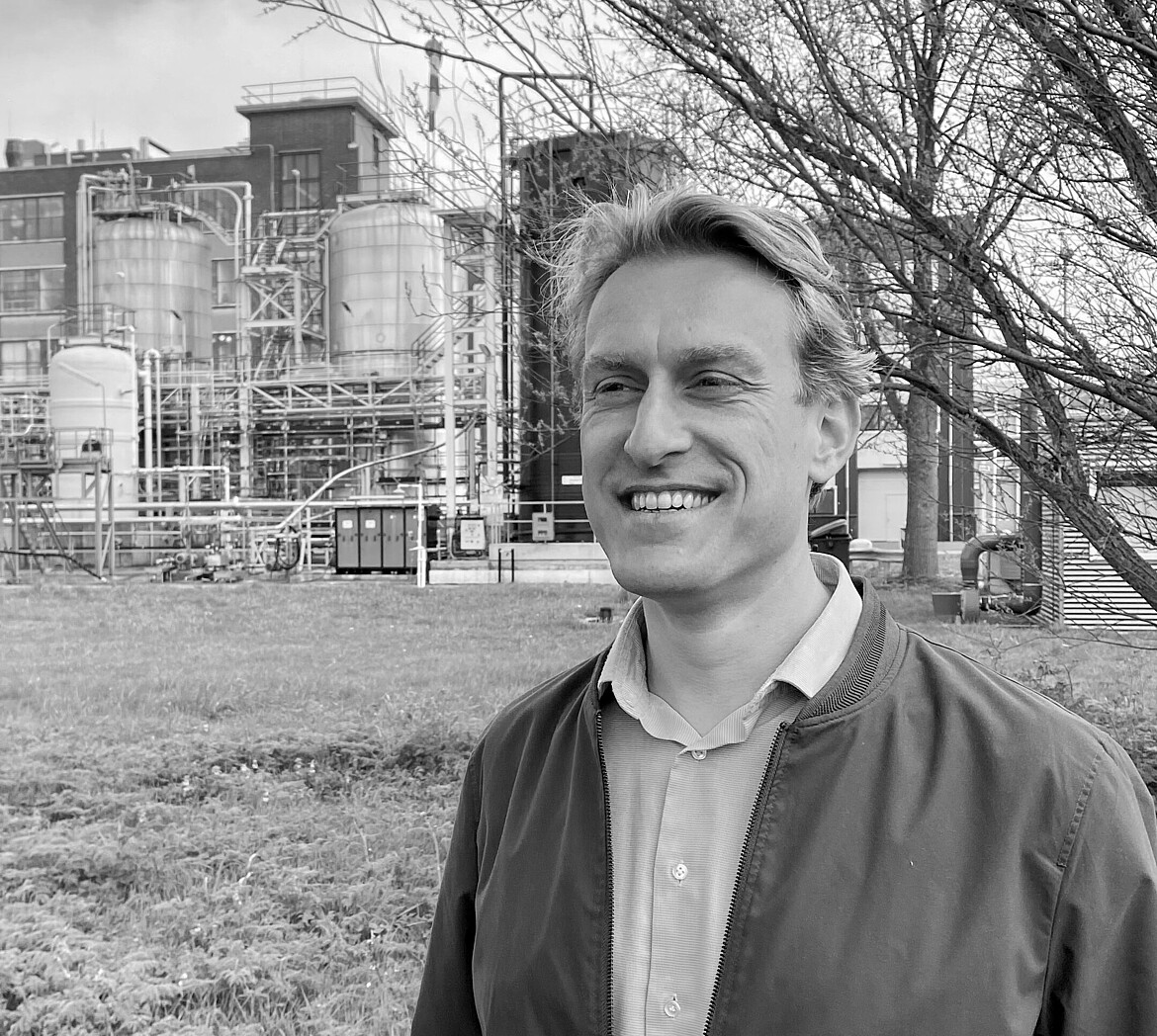Modern biotechnology enables us to turn a depleting, fossil-based economy, into a sustainable, bio-based and circular economy.
Michiel de Man Business development manager, Planet B.io

Using a wealth of experience, Michiel de Man (MSc Strategic Management 2008) focuses on developing and scaling business that is good for our planet. “We depend on healthy functioning of our planet. Yet, we have created an economy that behaves as a predator to the life supporting functions of our planet. So we must adjust our economy to follow the rules of nature.”
Michiel first completed a master in international development studies in Utrecht, followed by his RSM degree. “Since then I’ve worked at the crossroads of ecology and business. I always look for ways to use business to solve environmental challenges.”
Making ecology profitable
He used his combined knowledge from his education and experience as an innovation advisor at DSM to start up Commonland in 2013. “After a sabbatical to Tanzania, I carried out my dream to build on my ecological and business know-how to establish this organisation to conserve and restore nature and landscapes through business cases.”
At Commonland, his team developed several large-scale landscape restoration projects in South Africa, Spain, Australia and the Netherlands. They worked closely with the farmers and other land users to farm and do business in a way that it conserves the soil, water and biodiversity. “In Spain, we mobilised hundreds of farmers to shift from their degrading way of producing mainly almonds, to regenerative production systems. In all projects, we were able to demonstrate that it's possible to farm sustainably and also to preserve nature, and make this profitable through better business models.”
The key to a sustainable future
Michiel now leads business development at Planet B.io, a new open innovation hub located at Biotech Campus Delft. Planet B.io provides the know-how, infrastructure and networks to enable companies to innovate, develop and scale-up to create impact with biotech solutions.
“Industrial biotechnology can play a crucial role in solving some of the world’s major challenges, because even though used for centuries, microbes still have a lot to teach us, and they could just be the missing link in achieving a fully circular bio-based future,” Michiel explains.
Bread, beer, cheese, antibiotics and biofuels all have one thing in common: the use of microbes in their production processes. “Humans ‘domesticated’ microbes many millennia ago and ever since, these tiny creatures have become part of our food chain, our energy production and key to our health,” Michiel says. “But it doesn’t end there. What the past has brought us is only a glimpse of the potential of biotechnology, a science that thanks to the new technological developments could now just become the key to a sustainable future.”
At Planet B.io, the RSM alumnus aims to create an inspiring, innovative environment for biotech companies to grow their business, learn from each other, and create impact. “Modern biotechnology enables us to turn a depleting, polluting, fossil-based economy, into a sustainable, bio-based and circular economy,” Michiel says.
Carbon-negative microalgae drink
Planet B.io currently houses 12 innovative companies, including Meatable, which develops a technology platform to produce meat, based on cell technology; Nostics, which develops instant, reliable and affordable testing for infectious diseases based on nanotechnology; and FUL Foods, which is now launching a carbon-negative drink based on microalgae. “This is pretty amazing. Microalgae are very healthy but not very tasty. The team of four partnered with a big flavouring firm, which is pretty impressive for a small start-up to do. I think they pulled it off because of their sustainability mission. I had the chance to try it last week and it tastes great.”
“When companies have sustainability and environmental goals embedded in their business model, they have a better chance of growing successfully,” says Michiel. He says the good news is that there are more organisations with a purpose and sustainability focus than before. “Unlike in the past, sustainability performance is now high on the agenda of most corporate board meetings. For the start-ups and scale-ups at Planet B.io, solving sustainability challenges is even their ‘reason for existing’. This is a time of transformation and a very exciting time for business.”
We have a choice
Michiel says his combined background helps him to understand business as well as technological, environmental and development topics. “But at the end of the day, improving the world is a choice. Pick an issue you want to improve and just do it. You need to have an idea and be stubborn enough to keep trying. And if you’re too stubborn to fit in an existing organisation, you can always become a founder.”
People often shy away from it because it sounds idealistic and not profitable enough, Michiel adds. “But that time has really passed. There's no way you can make money unless you understand sustainability and act accordingly. This is a huge market which will become bigger and bigger.”
So what about becoming an investment banker? “Sure, you can do that, finance is a key industry to make a sustainable economy possible. In your portfolio, you’ll probably want to know which of the investments or venture capital funds focus on sustainability or societal matters. Multiple value creation is quickly becoming the norm, also in the more conservative fields like finance and accounting. You can make impact in any sector. I would be suspicious of an employer who doesn’t take sustainability seriously, as such companies may turn out to be the ‘boiling frogs’.”
Basically, we need to stop destroying nature, Michiel says. “Our species is dependent on a healthy world. We’re clearly not smart enough to outperform five billion years of natural innovation. The smart thing to do is to learn from this and adapt the ways in which we do business along the rules and systems of nature. That's our only chance of survival.”
